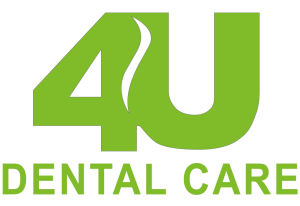The most crucial step a person can take to prevent and treat gum disease is to practise good dental hygiene. When it comes to oral health, most people ignore their gums and focus on obtaining a pearly-white smile.
However, healthy gums are necessary for healthy teeth. Tooth loss can result from gum disease. Fortunately, there are several things one can do to prevent gum disease or even reverse it.
5 strategies to maintain healthy gums
The following strategies will help you take proper care of your teeth and gums, which will, in turn, help avoid gum disease.
- Properly brush your teeth
Gum health can be maintained by using fluoride toothpaste to brush teeth twice daily. It is suggested that people take into account the following recommendations:
- Use a fluoride toothpaste and soft-bristle toothbrush to brush your teeth at least twice per day.
- Replace your toothbrush every 3-4 months.
- Short strokes should be used for brushing.
- By turning the toothbrush vertically and making several short strokes along with each tooth, clean the insides of the front teeth
- Flossing
Although daily flossing is sometimes disregarded, it is an essential step of oral hygiene. Food and plaque between the teeth and gums are removed by flossing. Tartar, a hard accumulation of germs that a dentist can only remove, can result from food and plaque remaining in these places. Gum disease can be caused by tartar.
- Use mouthwash
Cosmetic & Therapeutic mouthwashes are the two types of mouthwash available. A therapeutic mouthwash can help you :
- Reduce the tartar build-up speed
- Prevent gum disease
- Remove food particles from your mouth
- Reduce the accumulation of plaque on your teeth
- Quit smoking
The Centres for Disease Control and Prevention assert that smoking weakens the immune system, which increases a person’s susceptibility to gum disease. To help lower the risk of getting gum disease, the CDC advises quitting smoking right away. The risk can also be increased by using tobacco products.
- Schedule routine dental checkups
Professional mouth cleanings are included in Dental Checkups. The only method to remove tartar from the teeth is through professional cleaning. Professional cleaning can also assist in eliminating the plaque a person may have missed when brushing their teeth. A dentist can assist in spotting early indications of gingivitis, an inflammation of the gums, and gum disease with routine checkups. More serious gum issues can be avoided with early detection.
Diet tips
The state of one’s teeth and gums can be directly impacted by what one consumes. The effects of various foods on gum health might be either positive or negative. People should incorporate the following food into their diets:
- High-fibre vegetables and fruits can help in mouth cleaning.
- Green and black tea can help in bacterial reduction.
- Dairy products as they help to enhance the production of saliva.
The following foods and drinks should be avoided:
- Carbonated soft drinks
- Alcohol
- Sticky sweets and candies
- Starchy food that may stick to the teeth.
Risk factors to avoid
Various risk factors can increase the possibility of a person getting gum disease. Risk factors for developing gum disease include:
- Obesity & poor nutrition
- Genetics
- Teeth clenching or grinding
- Stress
- Tobacco use and smoking
- Age (older people are more likely to develop gum disease)
- Usage of certain medications, such as oral contraceptives and antidepressants.
Some diseases that impact the body’s inflammatory system can also increase the risk of gum disease. These diseases include cardiovascular disease, rheumatoid arthritis and diabetes.
When to visit the dentist?
If gum bleeding or discomfort persists for more than a week, a person should visit their dentist.Gum disease is characterized by bleeding, swollen, and red gums. Other warning signs and symptoms to watch out for are:
- Gums that recede from the teeth
- Pain while chewing
- Teeth that feel loose in the mouth
- Bleeding gums
- Red, swollen gums
- Sensitive teeth
Conclusion
Gum disease can result in tooth loss. However, it is possible to prevent gum disease by adopting proper dental hygiene practices. Frequent dental checkups and oral care can help control and reverse gum disease. If a person begins to show any symptoms of gum disease, they should visit their dentist.
